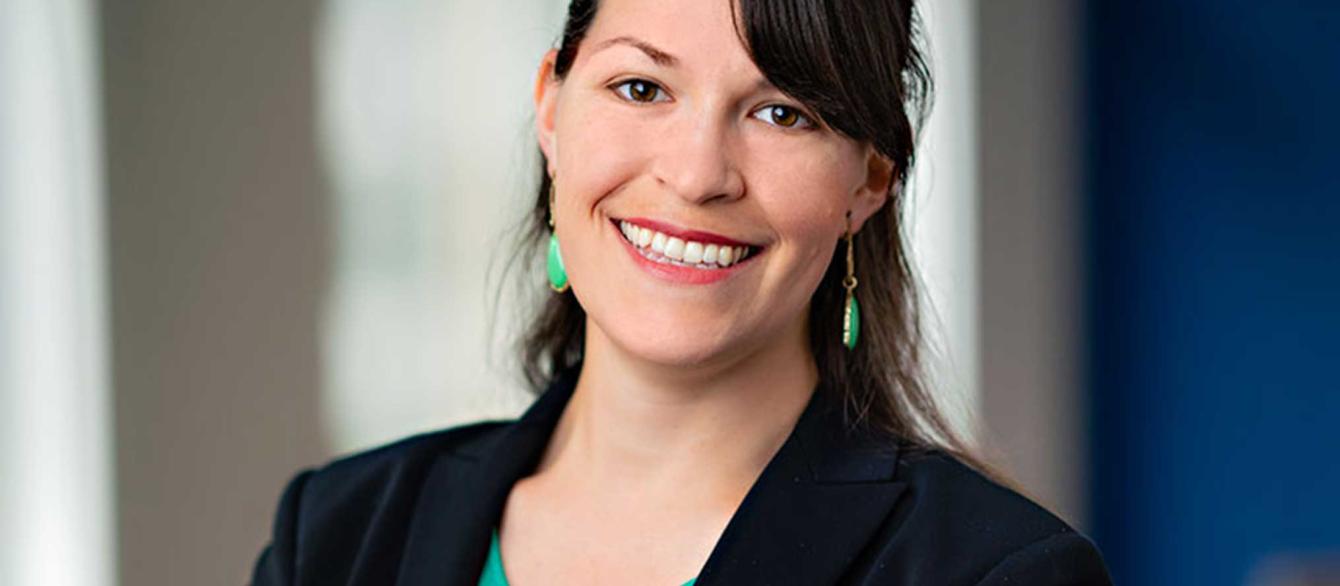Jessica Bufford, a 2020–2021 Arms Control Negotiation Academy (ACONA) Fellow, is a program officer at the Nuclear Threat Initiative, focusing on strengthening nuclear security globally. Previously she worked at the International Atomic Energy Agency and at the U.S. Department of Energy National Nuclear Security Administration. This interview has been edited for clarity and brevity.
Tell us a bit about your background and what drew you to the field of arms control negotiation in the first place.
Bufford: I studied political science in undergrad in the U.S. Both in high school and in college I participated in Model United Nations. I always ended up on the security committees, because those, to me, were the ones that had the most interesting conversations. Model UN is what first drew me to political science, and I realized that I really liked multilateral negotiation and diplomacy. I actually went to grad school intending to pursue conflict resolution.
In my first semester of grad school at the Monterey Institute, I took Bill Potter’s arms control negotiation course, alongside an intro to conflict resolution. Those two courses helped me realize that what interested me about conflict resolution was the negotiation aspect. Then, in a conversation with Linton Brooks, a U.S. ambassador, I asked him, “How do I become you?" And his comment was, “It’s fine for you to have conflict resolution as a skill set, but you have to have a knowledge base to really move forward in your career.”
I realized that I actually had a decent background in weapons of mass destruction (WMD) issues, and I was at the only school in the U.S. that offered a master’s in nonproliferation. So, I ended up switching into that, but retained a really strong interest in negotiation, studied the Treaty on the Non-Proliferation of Nuclear Weapons (NPT) during grad school, and really focused on those kinds of negotiations.
As I went into my professional career, I continued to pursue opportunities to learn about negotiation. One of my mentors served on the New START delegation and was part of the bilateral consultative committee. I got some really good insights from her and have tried to continue to pursue that thread, even though I now work in nuclear security. Additionally, I’m helping with preparations for a review conference that involves a lot of different negotiations, but I’m hoping to get back more into arms control in the near future.
Over the past year, you and three other Fellows conducted a research project about working towards a common language of nuclear diplomacy. What drove you to focus on the key areas of analysis in your report?
Bufford: It was largely inspired by some research I had done about how language was used in the European Commission. I had used textual analysis previously, and I found that it was an interesting lens through which to view different issues and think about how people talk about an issue, and what that shows about opinions, views, and values. One of the big hang-ups of nuclear disarmament is that people—or different camps—hold very strong views, but if you dig down into them more deeply, there’s actually a lot more corollary and overlap.
I think that’s frequently true for a lot of contentious areas in our lives. People are talking past each other, but they’re sometimes in violent agreement with each other, not disagreement. I was personally interested to see if we could use this textual approach to better understand the disarmament discourse and find a common language of nuclear diplomacy, as opposed to getting stuck in the same arguments about the need for disarmament versus the need for safeguard issues.
What would you identify as the main takeaway of your research?
Bufford: What stood out to me was just the real subtlety in how different countries talk about disarmament, where they’ll use similar vocabulary, but they’ll use it in slightly different ways. Or they will make similar arguments, but using different vocabulary. And so both of those add to the confusion and the challenges of communicating well.
What advice would you give to future ACONA Fellows?
Bufford: Take advantage of the networking opportunity. There are fabulous speakers who come in, and the expertise that’s being brought in to talk to the Fellows is really world class. But also take advantage of the Fellows, because the participants are also world class. And they’re participants that we’ll be working with in the future. That’s your future negotiating partner—or the person who’s sitting across the table from you. It’s a really valuable opportunity to get to know people who will be serving in all kinds of positions around the world. It's a unique collection of people that ACONA pulls together.
Any final comments?
Bufford: It was overall a good experience. It was helpful to get the combination of international nuclear policy perspectives and the Davis Center Negotiation Task Force, and having that mix was really interesting.




